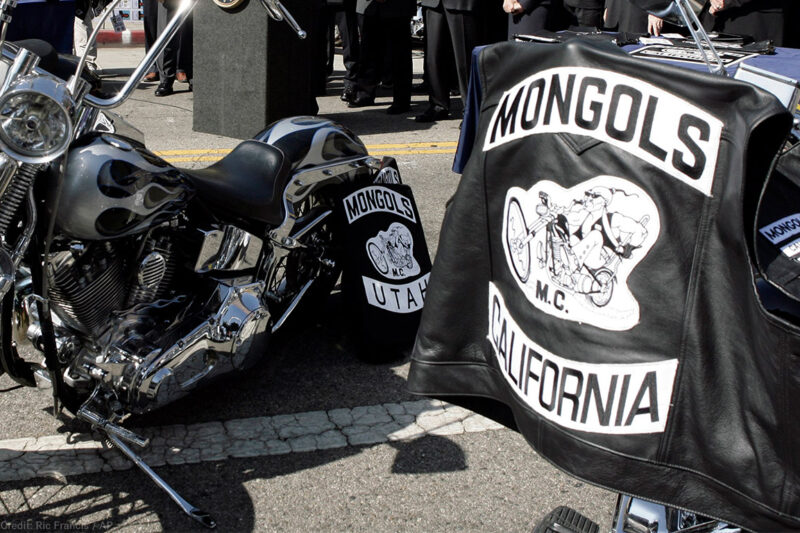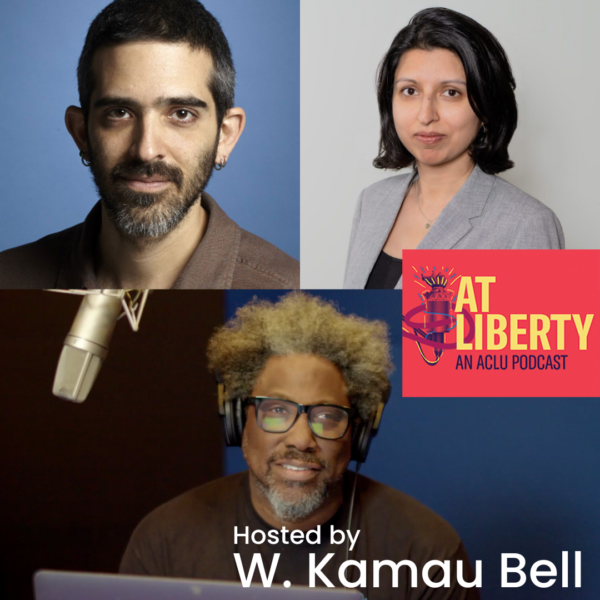Court Blocks Unconstitutional Government Seizure of Mongols Motorcycle Club Trademark


More than 10 years ago, the Department of Justice launched an unconstitutional campaign of censorship against a motorcycle club and its mostly Latino membership. Now a federal court has decided against the government, sharply criticizing its overreach and abuse of power.
Under the guise of a racketeering prosecution using a law known as RICO, the government sought to seize the Mongols Motorcycle Club’s trademark in its logo and strip members of the right to wear their distinctive patch.
On Feb. 28, Judge David O. Carter rejected the government’s attack on free expression and rebuked its repeated “affronts to the First Amendment.”
The ACLU Foundation of San Diego & Imperial Counties challenged the government’s campaign from the outset, representing a member of the club and winning court orders to stop the government from confiscating jackets, vests, and other items from club members. As the court held in 2009 and again in 2011, the government could not seek forfeiture because it had charged only individuals and not the actual owner of the trademark — the Mongols Motorcycle Club.
The court also noted in 2009 that “seizure of property bearing the mark at issue would have serious First Amendment implications” because display of the mark “communicates a person’s association with the Mongol Nation and his or her support for their views.” The court found that to prohibit “speech of this nature constitutes an attack on a particular viewpoint,” which is a textbook violation of the First Amendment.
Undeterred, the government indicted the club itself in 2013 and again sought forfeiture of the Mongol’s trademark. In December 2018, a jury found the club guilty of RICO violations. Although Judge Carter upheld the conviction, he denied the government’s attempt to take the club’s trademark. His decision adopted the reasoning of the ACLU’s friend-of-the-court brief in holding that “the forced transfer of the collective membership marks to the United States violates the First Amendment.”
As he wrote, a “collective membership mark is unique in that it is a type of trademark used to identify membership in a particular collective group or organization.” To display the mark expresses membership in or support for the club. “The First Amendment prohibits the Government from using RICO forfeiture laws to chill this expression,” Judge Carter wrote.
He noted that the “Government’s attempt to seize symbols has chilling effects on speech nationwide” and expressed concern that the DOJ had targeted “the symbol of a largely Latino motorcycle club” when it did not take similar action “in previous prosecutions against high-ranking members of rival motorcycle clubs, unions, churches, sports leagues, and fraternities.”
Judge Carter also held that forfeiture of the trademark would violate the Eighth Amendment’s prohibition against excessive fines. “Forfeiture of the rights associated with and appurtenant to collective membership marks is harsh and grossly disproportionate” to the relevant offense for which the club was convicted, the opinion said.
Quoting a recent Supreme Court decision, Judge Carter emphasized the risks to free speech presented by excessive fines which “‘can be used, for example, to retaliate against or chill the speech of political enemies.’” As Judge Carter wrote, “For more than a decade the United States has expended resources seeking forfeiture of the Mongol Nation’s collective membership marks. Why?”
The court did its job in rolling back government overreach — an especially important check when it comes to everyone’s right to speak freely.
Stay informed
Sign up to be the first to hear about how to take action.
By completing this form, I agree to receive occasional emails per the terms of the ACLU's privacy statement.
By completing this form, I agree to receive occasional emails per the terms of the ACLU's privacy statement.


